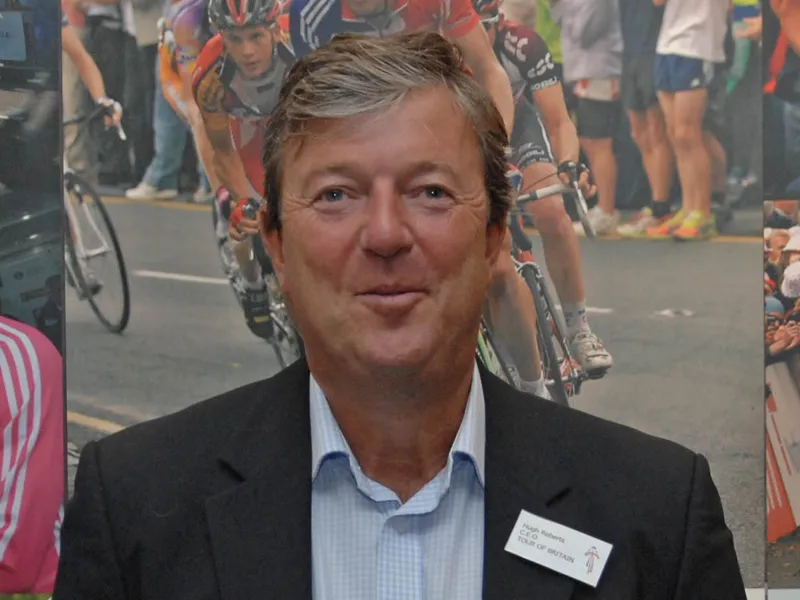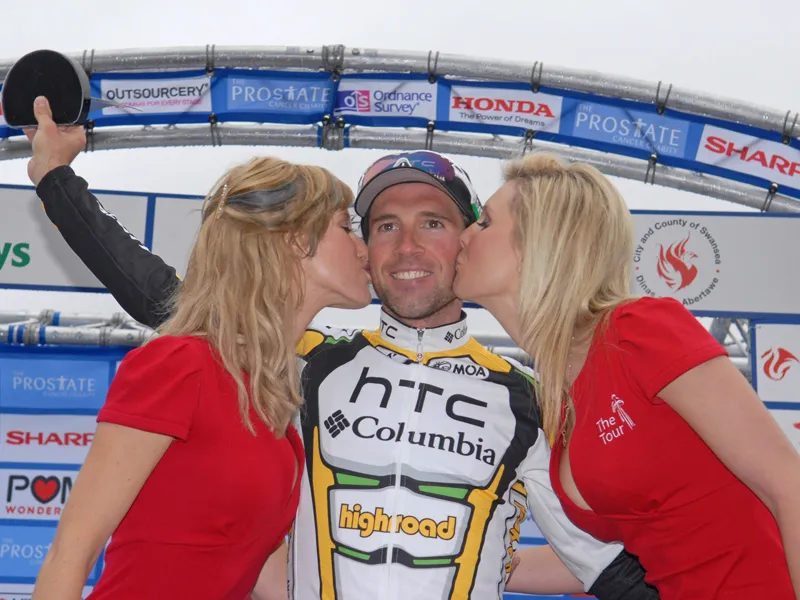By common consent, the seventh Tour of Britain, which finished in London on Saturday, was the best yet. But Hugh Roberts, the event’s chief executive, has admitted he is “concerned” by the prospect of impending cuts to public spending, which currently accounts for two-thirds of the race’s budget.
As Swiss rider Michael Albasini (HTC-Columbia) was awarded the final yellow jersey, Roberts said he was optimistic about the race's long-term future. However, he accepted that more "traditional sponsorship" might have to be attracted to replace any shortfall that results from the British Government’s spending review.
“It is a concern,” said Roberts of the impending cuts, “but we've had less of a dependence on regional development agencies this year. About a third of our budget now is from traditional [commercial] sponsorship and two-thirds is public funding.
“The cuts coming in in October are bound to affect us, and we may have to work a bit harder to find other [sources of funding]. But equally, I think this is coming at a time when the race is less dependent on stakeholder funding; when we can possibly start to attract more traditional sponsorship, especially as an economic upturn takes place.”
When the race was relaunched in 2004, it had a funding model that was intended to avoid the pitfalls of previous tours of Britain, which had been largely dependent on a single backer. Three national tours disappeared in the 1990s as a consequence of the withdrawal of Kellogg’s (Kellogg’s Tour of Britain), the Milk Marketing Board (Milk Race) and Prudential (the Prutour).
“We’ve never wanted to be totally dependent on one sponsor,” said Roberts, “because if they pull out, you’re completely stuffed. It can be very hard for another sponsor to come in and take over. But we think we’ve created some very strong foundations for the event, and we’ve got long-term contracts in place which take us up to 2012.”
The evolution of the tour has seen funding drawn from an increasing number of sources, as well as a gradual increase in commercial sponsorship. This now accounts for a third of the total budget, but the emphasis remains on spreading the funding load as widely as possible. “We have 46 sponsors,” said Roberts, “including public organisations and other sponsors. That includes lots of little ones, who put in bits and pieces and in-kind sponsorship.”
The police escort, comprising 32 motorbikes, is the biggest single expense. “They account for 15 percent of our total budget,” said Roberts, “but they do a fantastic job. The team is drawn from different forces, which means we have the same officers for the whole race – a great improvement on the first year.”

Hugh Roberts hopes to expand the Tour of Britain to a ninth day
The length of transfers between stages – the longest this year was 250 miles, following stage five, from Glastonbury to King’s Lynn – remains a controversial issue, but Roberts said an extra day, making the event nine rather than eight days, would resolve that.
“We’ve applied for it to be a day longer because we have regions that want it and we can’t go because of the logistical challenges,” said Roberts. “We were unable to go to Scotland this year, though it turned out Scotland were in a position where they didn’t mind having a year out, and the race will start there in 2011. The event has grown and could probably have grown a little more. But one of the reasons it hasn’t is that we weren’t allowed to go to nine days.
"We’ve had a bit of criticism from British Cycling and the UCI [International Cycling Union] for the length of the transfers. But here’s where the paradox lies, because, as we explained to them, there’s a very easy way of curing that. Give us another stage to bridge the gap. But unfortunately they don’t see it from the same perspective that we do.”
